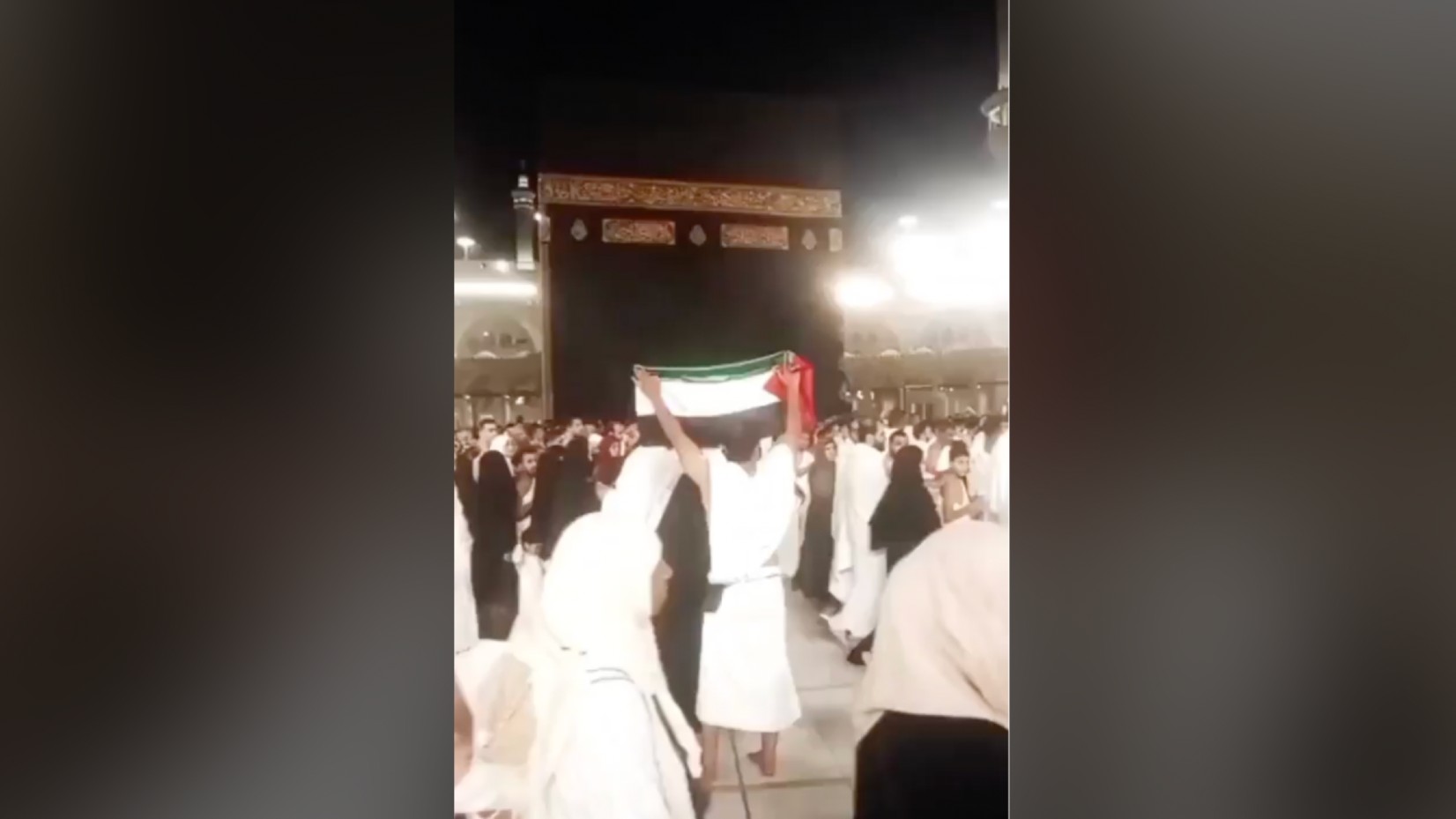Saudi security forces arrested an Egyptian pilgrim at the Grand Mosque in Mecca after he raised the Palestinian flag beside the Kaaba and called for an end to Gaza’s siege and starvation. The actions by the Saudi authorities has triggered widespread condemnation.
Footage shared online shows the man crying out “Wa Islamah!”, a phrase used historically to express anguish when Islam or Muslims are under threat, as he pleads for urgent intervention to help Gaza’s starving population.
Since Crown Prince Mohammed bin Salman rose to power in 2017, rights groups have documented a surge in arrests linked to peaceful speech, particularly posts viewed as critical of the kingdom’s foreign policy or regional alliances.
As Israel’s war on Gaza continues, the arrest in Mecca has deepened concerns that public support for Palestine is being criminalised in Saudi Arabia.
Still counts as a Haj.
Simply going to Mecca isn’t the Hajj. There are a whole bunch of rituals Muslims have to do while in Mecca and its surrounding areas.
When the pilgrim is about 6 miles (10 km) from Mecca, he or she enters the state of holiness and purity known as ihram and dons the ihram garments; for men they consist of two white seamless sheets that are wrapped around the body, while women may wear sewn clothes. The pilgrims cut neither their hair nor their nails until the pilgrimage rite is over. They enter Mecca and walk seven times around the sacred shrine called the Kaaba, in the Great Mosque; if possible, kiss or touch the Black Stone (al-Ḥajar al-Aswad) in the Kaaba; pray twice in the direction of the Maqām Ibrāhīm and the Kaaba; and run seven times between the minor prominences of Mount Ṣafā and Mount Marwah. On the 7th day of Dhū al-Ḥijjah the pilgrims are reminded of their duties. At the second stage of the ritual, which takes place between the 8th and the 12th days of the month, the pilgrim visits the holy places outside Mecca—Jabal al-Raḥmah, Muzdalifah, and Minā—and sacrifices an animal in commemoration of Abraham’s sacrifice. Male pilgrims’ heads are then usually shaved, and female pilgrims remove a lock of hair. After the rajm ritual at Minā, in which pilgrims throw seven stones at three walls (formerly pillars, symbolizing the Devil) on three successive days, the pilgrim returns to Mecca to perform the farewell ṭawāf, or circumambulation, of the Kaaba before leaving the city.
Informative…
Still counts.
If I was Allah I’d say it counts
I mean theres a lot of flexibility that people tend to forget about. If its justified you could even eat pork for example if for example you are starving and its the only food available. Its usually interpreted as “its the intent and will that matters, not your actions”. Of course if you have the ability you still have to perform the given actions.
Um . . . what



